The year is 2021, and the world reveal trailer of Wuchang: Fallen Feathers is released on YouTube to tons of plagiarism claims and ridicule. The 18 minute gameplay clip features almost exact copy for copy visuals, sounds, and assets from Bloodborne, Sekiro, and Dark Souls. Fast forward 4 years and Chinese developer Leenzee Games has thankfully done a significant overhaul of what we saw in that original video. I guess they weren’t lying when they said imitation is the sincerest form of flattery, but I’m glad to see Wuchang: Fallen Feathers carving out something of their own instead of imitating their inspirations down to a T.
The narrative centers on Bai Wuchang, a female pirate who awakens with amnesia during the late Ming dynasty in the war-torn and plague-ridden land of Shu. The region is consumed by the supernatural Feathering Disease, a mysterious epidemic that gradually transforms its victims into monstrous, birdlike beings, driving them to madness and often violent aggression. It’s pretty interesting to see each major boss represent a twisted parable of obsession, betrayal, or decay, with many real historical figures incorporated into the story as well. But let’s be real here, the story itself is quite derivative, especially with Bloodborne having already done a similar premise.
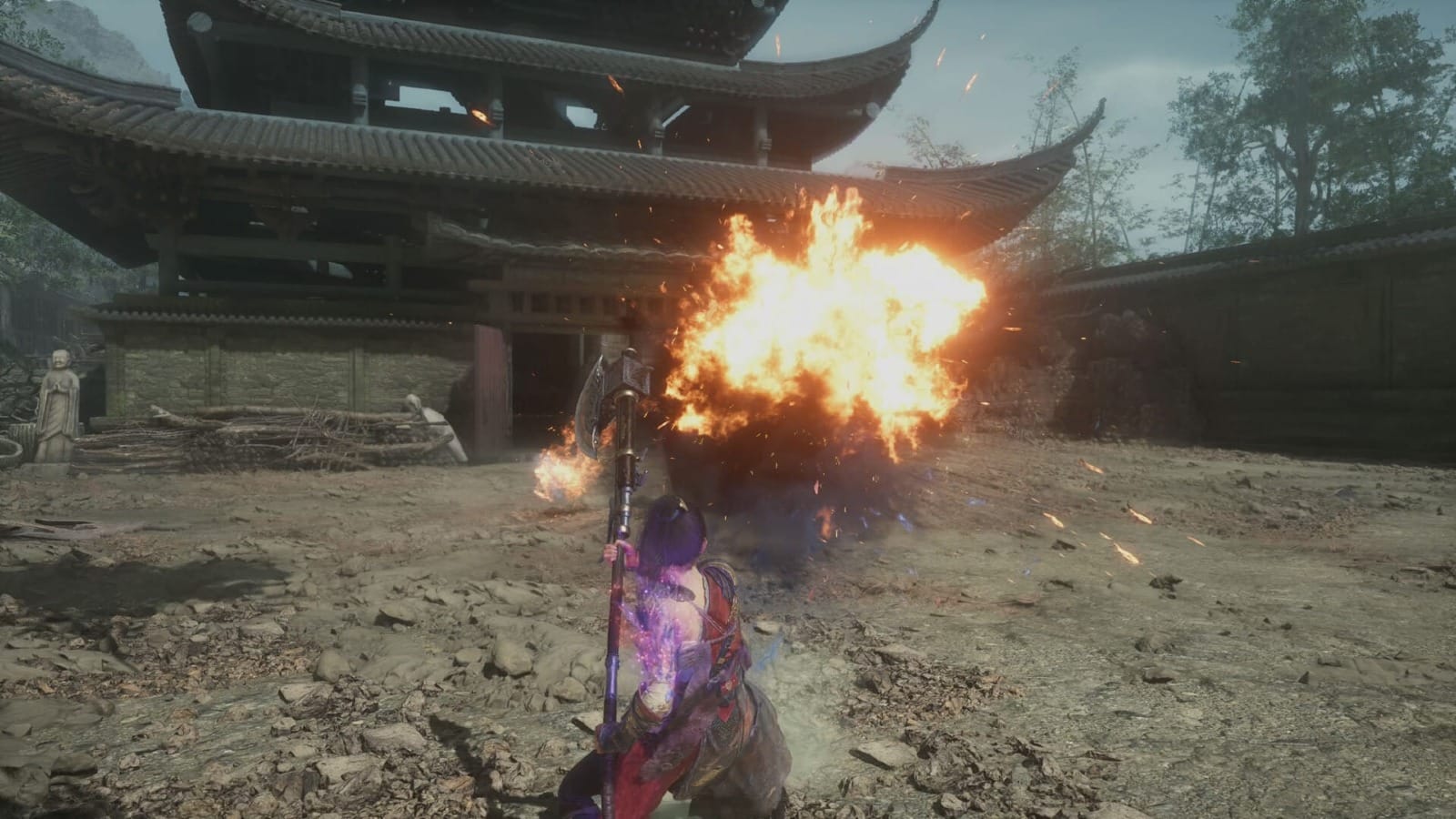
At its core, Wuchang is still a Soulslike clone, tried and true. It checks all the boxes: stamina based combat, tough as nail bosses, bonfire checkpoints, and cryptic environmental storytelling. If you’ve played any FromSoftware game, you already know the drill. The only standout mechanics are the Skyborn Might system along with the Madness mechanic.
Skyborn Might is just the game’s fancy term for a mana system. You gain stacks of it mainly from perfect dodging, but later on you can gain it from attacking consecutively or by other means from the skill tree. Skyborn Might can then be used to cast spells or trigger a quick weapon swap that does a follow up attack. In theory this is somewhat cool, as you can string together some fancy looking combos, whereas in reality, the average player would never be able to put it off. Some spells also require 4 or even 5 stacks of Skyborn Might to even use, and you can easily get interrupted from them with your lack of poise, an invisible stat that determines your resistance to being staggered by attacks.
You gain Madness each time you die, use a specific consumable, or take damage. With increased madness comes a boost in your damage, but also more damage dealt to you. Attacks that you could previously take 2 hits of will now one shot you. If you die at maximum Madness, a demonic version of yourself will spawn and fight you, requiring you to defeat it in order to recover your lost souls. Again, on paper this sounds neat, but in actuality, this system is nothing more than a nuisance, especially when it comes to boss fights. Say you die 20 times to a boss. You’ll already be at maximum Madness, with no other way to reduce it than spending a rare currency at a specific location. This essentially makes the boss fights harder than when you first fought it with zero Madness!
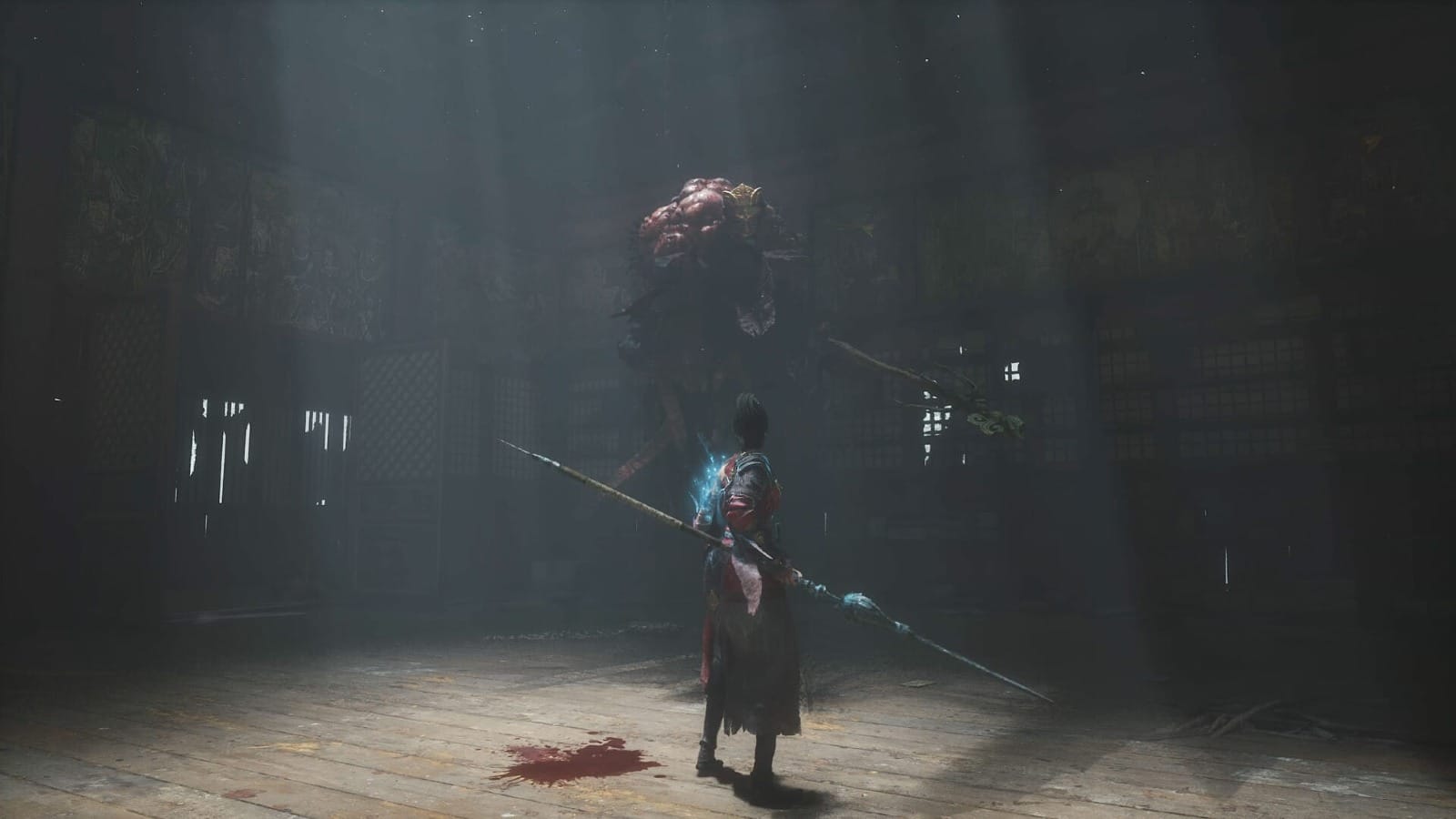
Unreal Engine 5 is often associated with performance issues related to framerate drops and stuttering. Unfortunately Wuchang: Fallen Feathers is no different. When the game is working, it looks fantastic with dynamic lighting, particle effects, and intricate environmental textures. The developers even nailed the upper body physics of the protagonist, particularly in the up and down motion, if you get what I mean.
However, the game is filled with visual glitches where the entire world becomes blurry and murky, as if it was rendered in 480p. Sometimes relaunching the game fixes it, but other times it persists. In addition, the action in the game is so flashy at times that it’s impossible to see what’s going on on the screen. Whereas games of this genre usually have visual cues of attacks that must be blocked or parried, Wuchang has none of that. In fact, it is extremely difficult to see your “soul puddle” when you die, as it's a dark navy color that often blends in with the environment.
During my roughly 30 hour playthrough, I would frequently experience framerate drops and complete freezes, even in performance mode. Usually, in other games, these freezes are often accompanied by crashes, but thankfully this game never crashed on me and the freezes always unfroze after a couple of seconds. Nonetheless, the technical polish needs a lot more work.
Although lots of recent Souls-like titles are introducing varying difficulty modes to make the genre more approachable for newcomers, Wuchang decided to stick closely with its role model. The first couple hours of the game will be extremely frustrating, as you will die in 1-2 hits from regular mobs and run out of stamina after 1 dodge. The game does not pause while menus are open, nor does it pause during tutorial pop ups! This means you will die while trying to learn the controls! Enemy poise is extremely difficult to break, whereas you have virtually no poise. This is true for regular mobs and exacerbated during boss fights.
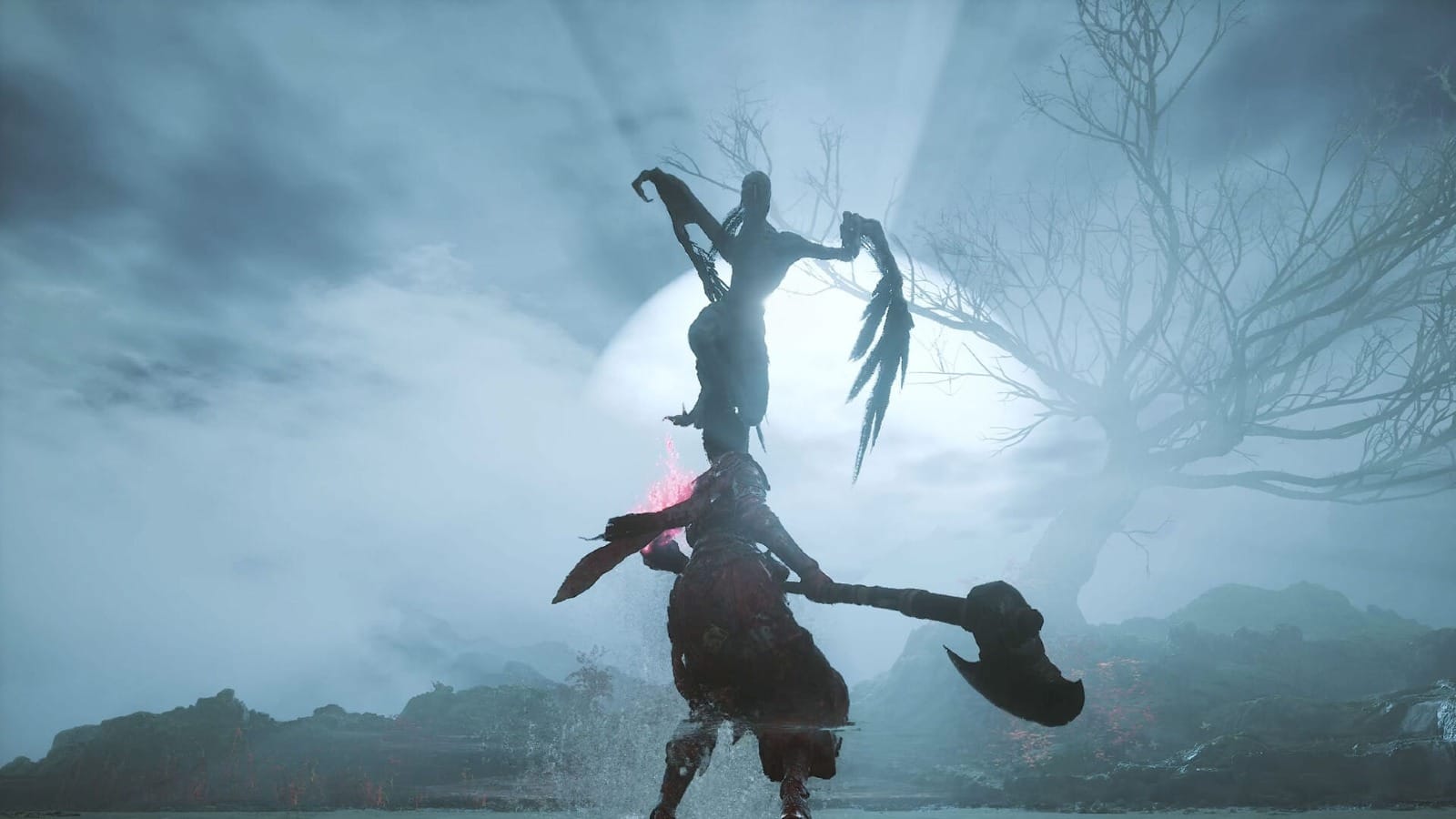
Wuchang loves to see you fail. It finds joy in trying to kill you anywhere you go. Every corner you turn will either present an invisible enemy that pops up from under the ground, a landmine, a treelog, a boulder, a cannon, or a death blight crystal. Status effects are almost instantaneous in infecting you, whether that’s death blight, which is instant death, poison, or reduced max health. This game embodies the very essence of artificial difficulty and cranks it up tenfold to the point where it’s quite hilarious. Oh look, there’s an item on the ground that you should pick up! Prepare to get immediately grabbed and stunned by two previously invisible enemies and then proceed to get one shot by a cannon.
Not only does the game love to see you fail, it also loves to waste your time. All of the elevators in this game take 10 years to go up or down, and do not automatically reset if you die and need to run back. This is a simple quality of life update that I have no idea why the developers decided to forego other than to waste your time! Thankfully boss runbacks are extremely convenient as there is always a shrine relatively near the boss arena.
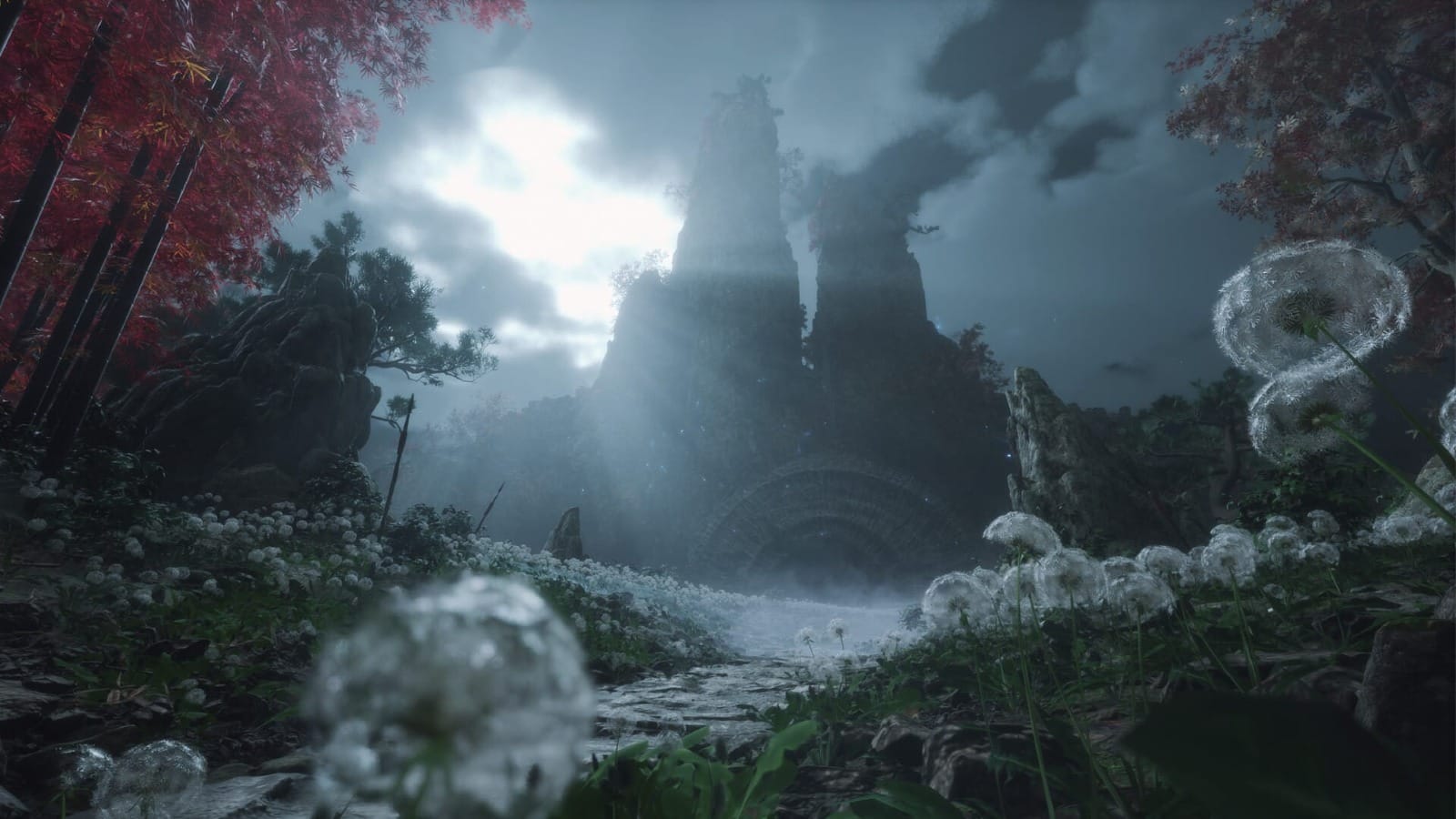
The outfit and armor customization is commendable and truly embraces the fashion souls mechanic, but the weapon progression and variety is extremely disappointing. There are only five types of weapons: longswords, regular swords, axes, dual blades, and spears. Each weapon type only has about four variations, bringing the total number of weapons in the game to the low 20s. Sometimes these weapons are dropped by bosses and other times they are found via exploration, but most of them aren’t good!
I used one longsword my entire playthrough, as the other variations sucked! Why did the others suck you might ask? My go-to weapon could extend into a whip, which effectively increased my attack range. This was a game changer to me as the range of most other weapons is so miniscule you’d have to be hugging an enemy to hit them. Of course this was not the case for enemy attacks, as their attack ranges far out-range yours. That being said, the game does encourage you to experiment with different weapons and skills as you can reset your skill tree nodes at no cost!
My biggest critique is probably how poorly the combat system was designed. This is a Souls-like game so I expect it to be difficult, but I don’t expect it to be unfair, which is exactly what Wuchang tries so hard to do. Getting 1-2 shot by an enemy is fine, as long as I have a fair chance at recovering and learning from my mistakes. There are bosses in the game that if you get hit once, you have zero chance of getting up because in the animation it takes for you to get back up. Even if you are spamming dodge, the enemy will chain another attack that will kill you instantly. You have virtually no i-frames during any of your movements whether that be spells, weapon skills, or even drinking from your flask. And you already know some of these animations are so long that it’s really not worth bothering as you’ll get interrupted out of them immediately.
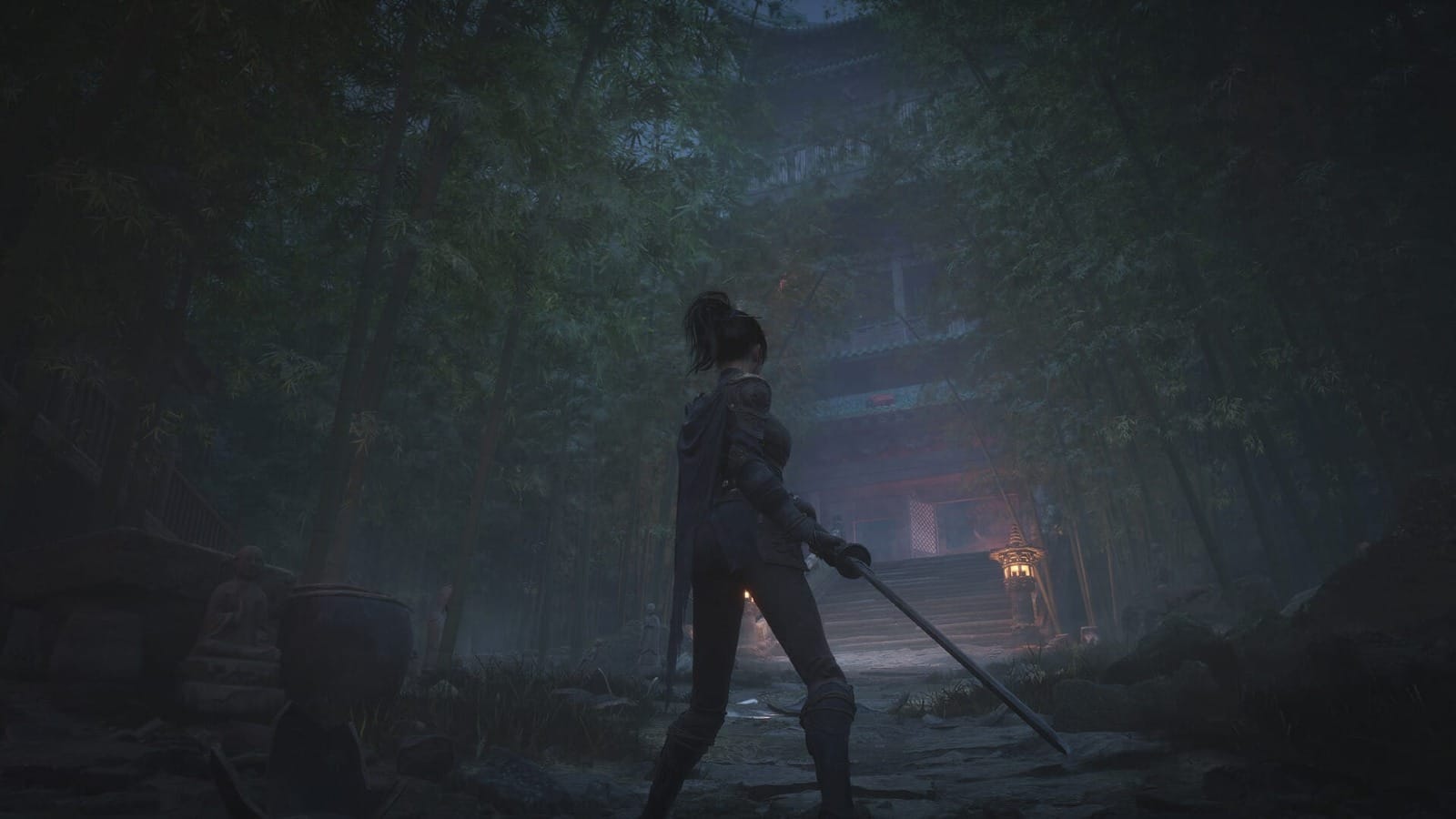
Boss encounters are aggressive and fast-paced, with no downtime. You will be immediately targeted right when you enter the arena, meaning if you want to buff yourself with consumables or blow a whistle to call in an ally, prepare to get whacked first! It also doesn’t help that you can only equip four items onto your hotbar, and of course you are going to have your flasks on one of them, meaning you only have three slots to put other items. And yes, the whistle to call an ally also takes up one of those slots.
The game size is much smaller than you would expect coming from a game of this caliber, taking up only 14.95 GB on a PlayStation 5. Load times are quite disappointingly long, taking 23-24 seconds to load in from the main menu and 9 seconds to reset the enemies when resting at a shrine. Usually resting at a “bonfire” is instantaneous, but this game broke a record with the longest time to load from resting!
When the game isn’t looking blurry, the environments are hauntingly beautiful, seamlessly blending decaying imperial architecture with grotesque horror imagery. The art direction is steeped in Chinese folklore, something I’d like to see more in games these days. The orchestral soundtrack, rooted in traditional Chinese instruments, make for an immersive and somber experience as well.
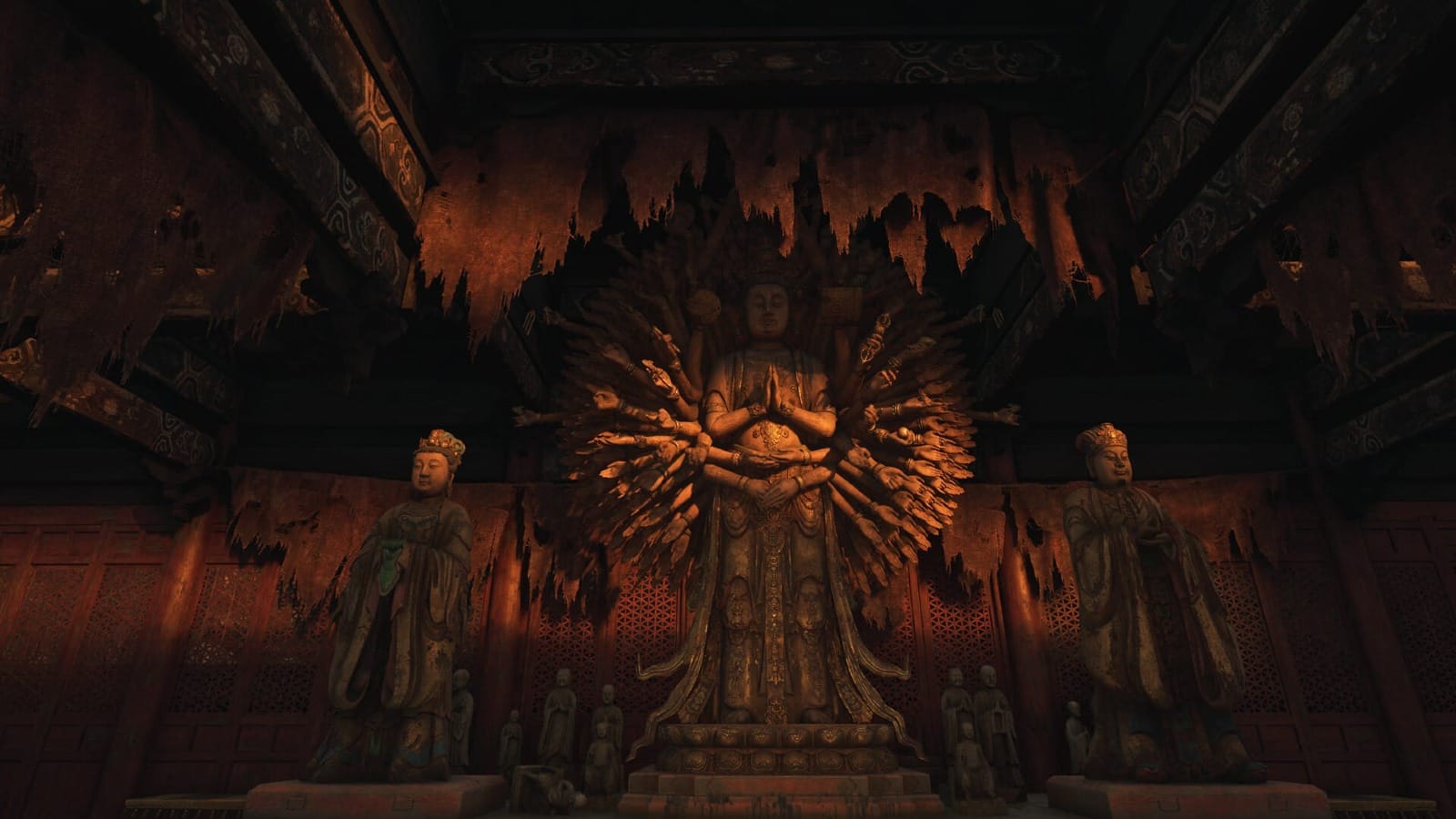
Joey’s thoughts:
Henry has done a great job of outlining the games shortcomings, so I would like to dig a little deeper into what went wrong in a broader sense. The term souls-like, much like its cousins, Metroidvania and rogue-like, begs a potentially unfair comparison in a way no other medium can. Do we call every animated movie a Snow White-like? Every car a Model-T-like? Don’t look to me on an idea for a replacement term, but I think that “souls-like” is too imprecise to encompass the vast influence Dark Souls has had on game design since its release. That being said: Wuchang is unequivocally, to its core, by design, a souls-like. And yet somehow it has no idea what that actually means.
More specifically, Wuchang is cribbing directly from the original Dark Souls. Remember Dark Souls? Was your favourite part the Anor Londo archers? Or perhaps getting poisoned in Blighttown? Or getting swallowed by a mimic? The Wuchang team sure thinks so. Instead of being inspired by the seminal game’s intricate, interconnected level design and deep worldbuilding, Wuchang instead opts to ignore much of what made Dark Souls great and copies a few very specific ideas that only work in moderation. There isn’t much thought put into enemy encounters past “how do we make this as difficult for the player as possible?” There is no layer of problem-solving, only bashing your head against an encounter until the chaos finally comes to a close with you on top. The combat is competent, at times even good, but the enemies and enemy placement serve to dampen rather than empower the player.
Moments of near-explicit reminders of the Souls games do Wuchang no favours. Early on, you’ll encounter a couple of NPCs who have locked themselves within their houses to avoid the horrors outside. Everything about these characters are Bloodborne-coded - down to the context of their hiding - which would be a fun nod in a less derivative game. Here, it feels more like the developers are deliberately forcing the Souls game comparison in order to remind players of their inspirations, which only makes me long to be playing an actual Souls game even more. Everything from the controls of Wuchang to the game’s grimy atmosphere feel like shallow references, all while better games like Lies of P are innovating brilliantly on the established formula.
Wuchang: Fallen Feathers
Alright
Wuchang: Fallen Feathers wears its inspirations a little too proudly on its sleeves, not to the point of the original plagiarism claims, but enough to fail to stand out in an increasingly saturated market. The game’s cultural authenticity is commendable, but it leans too heavily on familiar tropes. The middling technical performance is just the cherry on top.
Pros
- Fashion souls
- Upper body physics
- Reset skills at no cost
- Tons of secret bosses
Cons
- Long load times
- Poor technical performance
- Questionable combat designs
- Lackluster weapons
This review is based on an early PS5 copy provided by the publisher. Wuchang: Fallen Feathers comes out on July 23, 2025.





















